Discover Confidence Coaching with Heidi Benjaminsen
Confidence Coaching with Heidi Benjaminsen

Confidence Coaching with Heidi Benjaminsen
Author: Heidi Benjaminsen
Subscribed: 25Played: 1,173Subscribe
Share
© 2019
Description
Heidi Benjaminsen helps women transform stress into calm, fear into confidence and anxiety into peace when sending their children to college! Listen to hear tips and tools so you can be someone that your child WANTS to call and connect with. Learn more at www.heidibenjaminsen.com!
200 Episodes
Reverse
Loneliness isn't a flaw — it's a signal. A message from your nervous system saying: connection matters. When our kids launch and life shifts, our roles, routines, and nervous-system rhythms shift too. You can love this season and still feel the ache. Two things can be true. This episode breaks down what loneliness really means, why it shows up even when you're surrounded by people, and how to meet your connection needs with intention, confidence, and self-compassion. Key Themes 💛 Loneliness = unmet connection needs, not failure 🧠 Your brain sounds alarm bells — they're not always truth 🏡 Empty-nest change disrupts familiar emotional rhythms 🤝 Friendship in mid-life is built slowly, on purpose 💬 You can't outsource self-connection — it begins with you 🕊️ Two truths can coexist: gratitude for freedom + grief for change When Loneliness Shows Up 😔 Feeling unseen 🔒 Not safe to be vulnerable 🎭 Performing instead of connecting 🌫️ Life transition puts you in a different season than others What Helps 1️⃣ Name the emotion: "This is loneliness — I am safe." 2️⃣ Regulate first: breathwork, movement, cold water, hand-over-heart 3️⃣ Reality-check the story your brain creates 4️⃣ Build self-connection before outer-connection 5️⃣ Put yourself where connection can grow (repeat exposure) 6️⃣ Lead with curiosity & micro-vulnerability 7️⃣ Cultivate old connections with intention Powerful Reframes 🌱 You don't find friends in adulthood — you build them 💓 Self-compassion fuels authentic connection ✨ This isn't identity-loss — it's identity-expansion 🧲 Your energy attracts your people Takeaway Loneliness isn't proof you're alone — it's proof you're human, evolving, and ready for deeper connection. Let it guide you, not shame you. Be brave enough to show up, say yes, initiate, and build what you crave. A confident, anchored mother is a gift — not a perfect one. Share this episode with another mom in this season. She's not alone. Sign up for a consult call: https://calendly.com/heidibenjaminsen/
🎧 Episode 199 – Bittersweet Theme: 💫 Learning to honor and allow the emotion of bittersweet — the ache where joy 🌤️ and sadness 🌧️ intertwine. In this first episode of Heidi's Emotions Series, she explores one of life's most tender paradoxes — bittersweet — that space where the heart stretches between what was and what's becoming. 🕊️ Heidi shares personal stories of sending all three children to college 🎓 — the joy of their independence and the ache of quiet rooms and empty shoes at home 👟. She reminds us that bittersweet isn't broken; it's love expanding to hold both pride and grief. ❤️🩹 Bittersweet is the bridge 🌉 between past and present, endings and beginnings. From selling her family's beloved home 🏡 to adjusting to new rhythms, Heidi invites us to honor both sides of the emotion instead of resisting it. Quoting Brené Brown, she says: "You can't get to courage without walking through vulnerability first." Bittersweet is vulnerability — our heart saying, "I love so much that letting go hurts." 💔💖 🧠 Nervous System Wisdom When we feel both the bitter and the sweet, our nervous system experiences: 🌼 Expansion (joy, pride, gratitude) 🌧️ Contraction (loss, change, longing) If we deny either side, our system stays dysregulated. The key is to make space for both. 🌬️ Tools to Stay Anchored 🗣️ Name it: "This is bittersweet." Naming calms your brain and brings you back online. 🌸 Breathe: Inhale the sweetness 🍯, exhale the ache 🌫️ — whisper, "Both are welcome." 👣 Ground: Feel your feet, smell the familiar, notice the sounds around you — remind your body, I'm safe. 🚶♀️ Move: Walk, stretch, cry, or dance — emotion is energy in motion. 💖 Honor the Shift Instead of saying, "I shouldn't be this sad," Heidi reminds us: "It's not that something's wrong — it's that something important just shifted." Slow down. Let tears fall as acts of love, not weakness. 🙏 Practice gratitude for the moments that made you who you are. This is mono no aware — "the beauty of things passing." 🌅 Because that ache in your chest? It's just love with nowhere to go yet. 💞 We're not broken for feeling bittersweet — we're beautifully human. 🩷 ✨ A confident mother is the greatest gift to her family — not a perfect one. Visit heidibenjaminsen.com for the 💕 College Mom Course and to explore private coaching that helps you stay anchored, calm, and confident through every season of change. 🌿 Set up a consult call at https://calendly.com/heidibenjaminsen
🎙️ Episode 198: How Words Shape Us 🌱 The words we speak are not just descriptions—they're blueprints for the lives we're building. In this empowering episode, Heidi explores how the language we use daily plants seeds that shape our identity, relationships, and even what we believe is possible. Whether you're talking about yourself, your children, your future, or your bank account—your words are either creating momentum or building barriers. 💬 What You'll Learn: Why your internal dialogue is the most powerful soundtrack of your life How to stop unintentionally sowing seeds of shame, scarcity, or self-doubt The neuroscience behind how words shape identity and emotional regulation How to consciously choose empowered, growth-oriented language for yourself and your kids Why how we talk about others' success reveals our own beliefs about possibility 💡 Action Steps You Can Take Today: 🔁 Reframe disempowering language: ❌ "I can't do this" → ✅ "I'm learning how to…" ❌ "I should…" → ✅ "I choose to…" or "I want to…" ❌ "She's lazy" → ✅ "She's still discovering what motivates her" 🌟 Practice empowered speech: Praise effort, not just outcomes. "I'm proud of myself for showing up." Talk about your kids with growth-oriented language: "He's learning responsibility." Describe your life as if possibility is the norm: "We're making smart choices right now." 🧠 Monitor your thoughts: Catch victim-y language like "my life is a mess" or "must be nice" and ask: What am I attracting with these words? Choose words that inspire agency and hope instead of helplessness and resentment. 📝 Rewrite limiting beliefs: After visiting someone "further ahead," ask: Do I want to believe this isn't for me? Or am I open to growing into this possibility? 👀 Be intentional with labels: Swap disorder → difference → superpower Let labels lift, not limit 🪴 Remember: Words = Seeds Every sentence you say waters something in your world. Speak as if what you desire is already blooming. Your nervous system is listening. So are your children. Your words matter more than you know. Choose them like the sculptor chooses their tools—carefully, intentionally, and with love. Speak life into your world 🌎💬
🎙️ Ep 197 – How to Apologize 💛 Repairing Relationships with Confidence and Calm Apologizing isn't about shame or groveling — it's about emotional strength, humility, and staying grounded in discomfort. In this episode, Heidi breaks down how to make heartfelt apologies that build trust, not tension — and why this matters deeply for the emotional health of your family. You'll learn: 🧠 How real apologies shift your nervous system into connection 🪨 Why we must feel discomfort in our bodies to repair with honesty 📣 The 5-step apology that includes changed behavior (not just words) 🛑 What not to say — and when NOT to apologize at all 👀 Why modeling repair teaches our young adults emotional maturity 🤝 Personal stories of family healing and self-forgiveness 💬 "I'm sorry" is just the beginning. Real connection is built on humility, trust, and repair. ✨ Plus: Heidi shares a powerful example of apologizing not to change a relationship — but to grow into a better version of herself. 🎓 If you're preparing to send a child to college, check out Heidi's College Mom Course on heidibenjaminsen.com — filled with videos and tools to help you stay calm, anchored, and connected. 🎧 Tune in now and learn how to apologize with strength, clarity, and compassion.
🎙️ Episode 196: Creating Connection 💞 In this heart-opening episode, Heidi explores what it really means to connect — not just with words, but with energy, presence, and intention. 💫 You'll learn: ✨ Why connection is an energy loop — and how we either open or close that loop 🐧 How penguins pebble and what that teaches us about human connection 📱 The subtle bids your kids, spouse, and friends are making every day 👀 What your body language says about your emotional availability 💔 The impact of disconnection — and how to gently repair it ❤️ Daily ways to build deeper relationships with your teens, college kids, and partner Heidi shares coaching stories, practical tools, and heartfelt examples of how to stay grounded and connected — even during stressful or distant seasons of life. If you've ever wondered how to love better, listen more openly, or create warmth in your home and relationships, this episode is your roadmap. 🗺️ 🎧 Tune in and start offering "pebbles" of connection today. Ready to create important connections? Set up a consult and let's talk https://calendly.com/heidibenjaminsen/
💬 Episode 195: Self-Reflection with Grace What do you do when self-reflection stirs up guilt, shame, or regret? 😣 In this episode, Heidi walks you through how to face your imperfections with compassion, truth, and grace — so your self-awareness actually leads to growth, not shutdown. 🌱 ✨ Learn why it's hard to see ourselves clearly 🛑 Understand how perfectionism and shame hold us back 🧠 Use self-compassion to move forward with strength 🌬️ Regulate your nervous system when tough emotions rise 🗣️ Apologize without drama or over-explaining 🧭 Take one small step toward change 💞 And see how emotional maturity creates deeper connection with your kids This episode is for every mom who wants to raise emotionally healthy humans — and model what it looks like to love yourself, even in the messy middle. 💗 You don't need to be perfect to be powerful. You just need to be real. 👣 🔗 Listen now and breathe in this reminder: You are enough. And you're growing. Ready to change? Let's talk! https://calendly.com/heidibenjaminsen/
✨ NEW EPISODE! ✨ 🎙️ Ep. 194 - Two (Opposite) Things Can Be True Ever feel proud and heartbroken as your child leaves for college? Relieved and guilty for enjoying the quiet house? Worried and trusting all at once? 💡 You're not broken. You're human. And BOTH can be true. In this episode, I share: ✨ Why our brain resists emotional complexity 🧠 How to train your nervous system to hold two truths 💬 A coaching story that will make you feel seen 🤝 How cancel culture and ghosting thrive in "either/or" thinking 💚 3 tools to practice both/and awareness in parenting, marriage & friendships 📌 Highlights: ✅ Name both emotions out loud ✅ Swap "but" for "and" ✅ Soothe your nervous system while holding the tension Let's stop expecting perfection and start making room for humanity.
✨ NEW EPISODE! ✨ 🎙 Ep 193: The Power of Self-Reflection is LIVE! Ever blamed someone else… only to realize later you were the source of the problem? 😅💡 Yep, me too – and this week I'm sharing a funny lightbulb moment (literally 💡🌙) that reminded me just how powerful self-reflection is. Inside this episode: 🪞 How to tell if the "problem" is yours or theirs 🧠 Why self-reflection only works when your nervous system is regulated 🧘♀️ A life-changing tool: "Just Like Me" 🫶 How to handle stress, irritation, and tension with more compassion 💬 Real examples from my life (yes, college dorm drama included!) Self-reflection doesn't keep us stuck – it moves us toward connection, calm, and confidence. 💚 👉 Get the Confident College Mom Course Here
🌟 New Podcast Episode: "Helping Kids Handle College Rejections" 🌟 Parents, are you navigating the emotional rollercoaster of college application season with your kids? This week's episode is for you! 🎧💬 Rejection letters can be tough, but they're also incredible opportunities for growth. In this episode, I share: ✅ How to support your child when they face rejection. ✅ Ways to help them process emotions in healthy, confident ways. ✅ The importance of modeling vulnerability and resilience. 🎯 Key Takeaways to Help Your Child Handle College Rejections: Acknowledge Their Feelings: Validate their emotions without trying to immediately "fix" them. Share Stories of Resilience: Talk about your own challenges and rejections to show setbacks are part of success. Model Positive Reactions: Avoid negative talk about the school or others who were accepted. Celebrate others' wins! Encourage Reflection: Ask open-ended questions like, "What do you want to do next?" to help them look ahead. Remind Them of Their Worth: Rejection doesn't define them. Confidence comes from knowing they're more than one decision. ✨ Confidence isn't about avoiding failure—it's about embracing it as part of a vibrant, courageous life. Let's show our kids how to move through disappointment with grace. 👉 Listen now and share with a fellow senior parent! 💖
🎙️ New Podcast Episode! 💡 Ep 191: Quieting the Commentators and Narrators Are you living your truth or letting the "commentators" shape your perspective? In this episode, I share lessons from the BYU-Alamobowl game, personal stories, and practical tools to help you: ✨ Distinguish between others' narratives and reality. ✨ Identify biases in yourself and others. ✨ Trust your intuition and maintain personal authority. Here are 5 Key Questions I use to quiet the noise and stay grounded: ✅ What am I not seeing or hearing in their perspective? ✅ What's their motivation or stake in persuading me? ✅ Are their words aligned with the facts I can verify? ✅ Am I only agreeing because it matches my beliefs? ✅ Do I need more information before forming an opinion? 🎧 Listen now to learn how to anchor yourself in truth, confidence, and emotional maturity. 👉 DM me if you'd like to work on uncovering your calm, confident self in 2025! #Podcast #ConfidenceCoaching #EmotionalMaturity
Key Message: How we give and receive energy are deeply connected - our ability to do one affects our ability to do the other effectively Key Points: • If you have trouble receiving help or gifts, you may unconsciously be: - Limiting abundance in your life - Blocking positive connections with others - Judging others when you give help - Teaching your children unhealthy patterns • Tips for Gracious Giving: - Give without expecting anything in return - Avoid giving from a place of obligation or resentment - Let go of keeping score in relationships - Don't use past gifts to manipulate ("I bought you those jeans, so...") - Remember that anonymous giving can be powerful • Tips for Gracious Receiving: - Practice simply saying "thank you" without deflecting - Accept compliments with a simple "I appreciate that" - Allow yourself to be vulnerable in receiving help - Don't feel pressured to reciprocate immediately - Remember that accepting help models healthy behavior for your children • Practical Applications: - Write thank you notes from a place of gratitude, not obligation - Look people in the eye when receiving compliments - Accept help when needed, especially during challenging times - Let go of the need to "prove a point" by rejecting help - Model gracious receiving for your children • Benefits of Balanced Giving and Receiving: - Stronger connections with others - More authentic relationships - Increased abundance in your life - Better role modeling for your children - Deeper family bonds Remember: Being vulnerable enough to receive help is just as important as being strong enough to give it. This balance creates healthy connections and models positive behavior for your children. Curious about having your own, private confidence coach? Sign up here.
Key Points: Host Heidi Benjaminsen discusses the importance of "quiet wins" - personal victories in emotional life and relationships that often go unnoticed These wins build confidence and strengthen family relationships, even when others don't explicitly acknowledge them Notable Quiet Wins Discussed: Staying calm and curious during difficult conversations, especially with children Not participating in gossip or spreading private information about others Declining invitations/opportunities that don't align with your values or energy Resisting the urge to correct or give unsolicited advice, especially to children Allowing others (particularly children) to manage their own responsibilities Speaking positively to yourself after failures or setbacks Apologizing without casting blame on others Making responsible financial decisions, even when unsexy or invisible Remaining non-defensive when facing criticism or belittling comments Maintaining a positive attitude after committing to help, even if reluctant Disengaging from negative discussions without feeling compelled to respond Being direct about important issues while maintaining professionalism Avoiding guilt trips with teens/young adults when they decline family activities Key Takeaway: While these wins may be quiet, their impact is significant - they build trust, strengthen relationships, and develop personal integrity. As Heidi emphasizes, "A confident mother is the greatest gift to her family - not a perfect mother." Sign up for a consult call here.
Uncertainty is the breeding ground for stress and anxiety. But it is always about a future possible event, it isn't about the present. When our body feels uncertain, our nervous system works up into a tizzy to try to protect us from any future possible danger. Listen to episode 188 to hear Heidi teach you how to calm your nervous system so you can anchor back into the present. Learn about: Belly breathing 5 senses anchoring Toe to head tensing and releasing Positive visualization Once we have regulated our nervous system, we can see we can handle the present... because we are. For private coaching, set up a consult call at https://calendly.com/heidibenjaminsen/
Have you ever felt like you're butting heads with your strong-willed kid? Well, you're not alone! Episode 187 shares some fantastic tips for dealing with those headstrong, independent-minded teens we all know and love. First off, let's celebrate these traits! Heidi reminds us that having a strong sense of self and the ability to think independently are actually superpowers. We're not trying to squash these qualities, just guide them in a positive direction. Here are some nuggets of wisdom from the episode: Choices, choices, choices! Whenever possible, give your teen options. This could be as simple as "Do you want to ride with your brother or us to the event?" It helps them feel empowered and invested in decisions. Find the 'yes' in the 'no'. When your teen asks for something you're not keen on, try to find a small part you can agree to. For example, if they're always asking to eat out with friends, maybe you can say yes to one meal a week. This approach helps them focus on what they're getting rather than what they're not. Watch your tone! Our teens can be sensitive to authoritative tones, so try to soften your approach. It doesn't mean you're not in charge, just that you're being respectful of their growing autonomy. Invite their input. Ask for their thoughts on family decisions. It shows you value their opinion and helps them practice decision-making skills. The best part? These strategies can lead to stronger relationships with our teens. Heidi mentioned that her daughter now comes to her for advice on almost everything! Remember, we're not aiming for perfection here. It's all about finding ways to respect our teens' growing independence while still providing the guidance they need. It takes time and practice, but it's so worth it. Sign up for a free consult call to see how coaching can help you show up as the mother you want to be https://calendly.com/heidibenjaminsen/
Hey there, moms! If you're getting ready to send your kid off to college, this episode of Confidence Coaching with Heidi Benjaminsen is definitely for you. Heidi dives into understanding our nervous system and how it affects our emotions and reactions, especially during big life changes like your child leaving for college. She explains that our nervous system is like a background program constantly running to keep us safe, but sometimes it can be a bit overprotective – like a smoke detector going off for burnt toast! She breaks down our nervous system states into three "colors": Green: This is our happy place – calm, connected, and able to think clearly. Red: Think fight-or-flight mode – stressed, anxious, and on high alert. Grey: This is our freeze response – feeling low, hopeless, or burned out. The key takeaway? It's normal to move between these states, especially when facing something as emotionally charged as sending your kid to college. Heidi emphasizes that it's not about staying in the "green" all the time, but rather about recognizing which state you're in and having tools to get back to "green" when needed. She offers some great tips for regulating your nervous system, like breath work, exercise, and connecting with supportive people. Oh, and heads up! Heidi's going to be releasing an inexpensive self-study course soon to help you prepare for taking your child to college. Plus, she's planning some support groups for moms who've just dropped their kids off at school – definitely worth checking out if you're interested in extra support during this transition. Remember, moms, it's totally normal to feel a mix of emotions during this time. The goal isn't to be perfect, but to be aware of your feelings and have strategies to stay grounded. You've got this!
Episode 185 of Confidence Coaching focuses on achieving freedom from drama in life. The host, Heidi Benjaminsen, starts by defining drama as exaggerated behavior or reactions, often performed for others. She then outlines six key strategies to reduce drama in our lives. The first strategy is to create space for thinking and curiosity about situations and people's motives. This involves slowing down and questioning our assumptions. The second is to distinguish between facts and the stories we create about those facts, recognizing that our perceptions are colored by our experiences and values. Heidi emphasizes the importance of staying calm when others are upset, allowing their drama to land in front of us rather than on us. This requires compassion and the understanding that we can choose how to respond to others' drama. She also advises avoiding gossip and making assumptions about people, as these behaviors often fuel unnecessary drama. Another crucial point is to mind your own business and create boundaries. Heidi suggests that by staying in our own "lane" and limiting what we allow into our personal space, we can significantly reduce drama in our lives. She also stresses the importance of being present and not letting frustrations grow bigger than necessary. Reducing drama can lead to more authentic relationships and genuine confidence.. As we reduce our drama, our children have a model to have less drama and negativity in their lives!
A friend told me she was sad and asked if she could call me. Episode 184 is step by step how I validated, witnessed and helped her process her sadness. We will all feel sad, it is a normal human emotion. The skill of zooming in and seeing the sad is what helps all of us get to the other side of the sadness. Listen to hear what color her sadness was and where she felt it in her body. She now knows how to love and care for the sadness when it comes back. This is a must listen for all parents, friends, spouses and humans who want to connect more with other humans. A confident mother is the greatest gift to her family!
Our life made up for billions of moments/experiences and each experience has three layers: The actual experience. Our awareness of the experience. The story or meaning we create about the experience. Listen to episode 183 as Heidi Benjaminsen shares and breaks down several experiences of her life into these three layers. You'll learn that actual experiences only last a short period of time. Heidi teaches how having the awareness inside our body helps us feel any emotion and know it will pass in time. Being able to handle any emotion allows us to stay in our lane and stay calm and anchored. Heidi shares how we are shaped most in life by the third layer, the stories we tell about each experience. She teaches how to make meaning in our life that will create the life experiences we really want. Would you like to know how to calmly handle the silence when your college student doesn't reply to texts or calls? Click here for instant help!
It sounds like a kind desire to have towards others - wanting them to be happy and feel good. This desire works... until it doesn't and this thought becomes toxic and creates stress (in us and them). And disconnects us from the people we love most who experience human and negative experiences. When others are sad, grieving, disappointed and more, they don't need us to tell them we really want them to be happy. (If we do this, they don't want to be around us - which is usually the opposite of what we want.) They need us to witness their negativity, they need validation and support. They don't need "fixing", which is what it feels like (unintentionally!) when we want everyone to be happy. Ironically, as we sit with others in their negativity, they naturally feel "better" because they feel seen and loved. Which is what we all want anyway. Listen to episode 182 to hear the reasons why we don't want people to be happy all the time and how to create more humanity and love in our relationships.
Humans are like magnets. Something in our make-up attracts or repels certain people. I believe OUR VIBE or our energy attracts certain people, certain successes, and certain failures in our life. And our VIBE repels others. Our vibe includes our nervous system - how we hold our body, the words we use, our mannerisms, how we dress, act, don't act, how we talk about ourselves and others. This is the energy we put into the world. And energy follows energy. Listen to this replay of one of the most downloaded episodes to hear how to identify and change anything about your VIBE that isn't how you want your life to look. Goodness and confidence are out there. Now let's attract more of this into our lives!


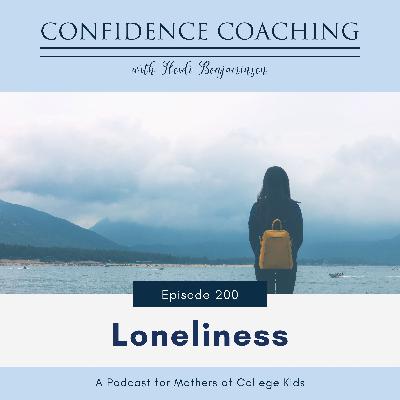
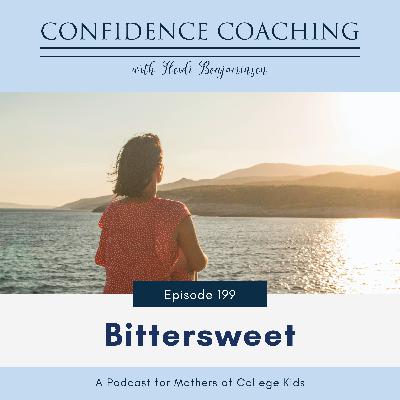
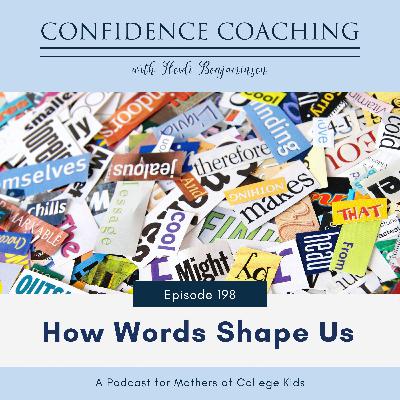
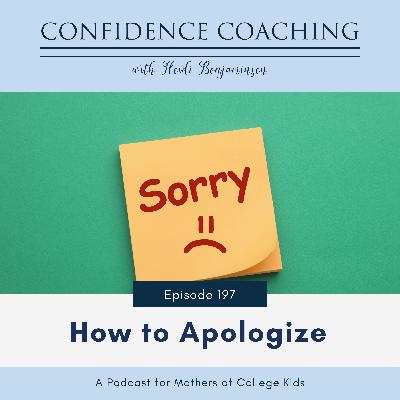
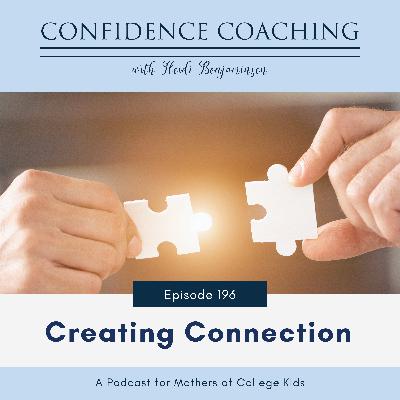
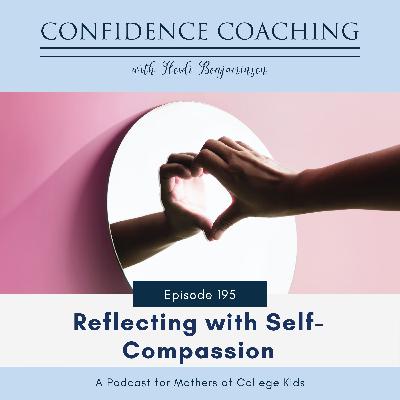
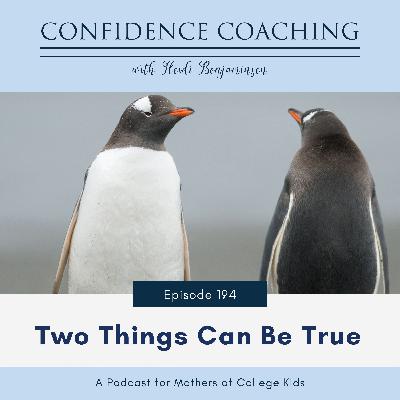

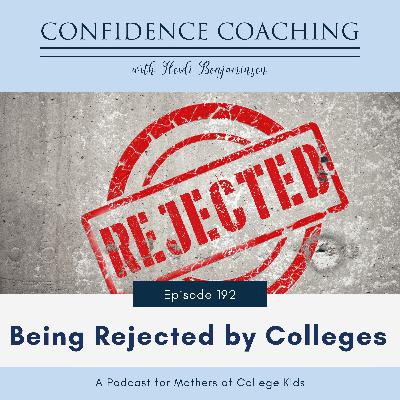
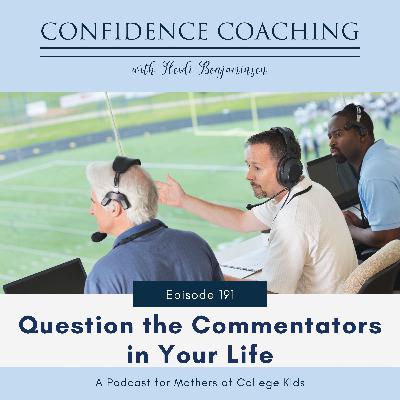
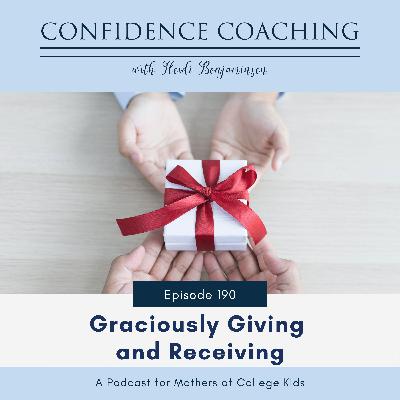
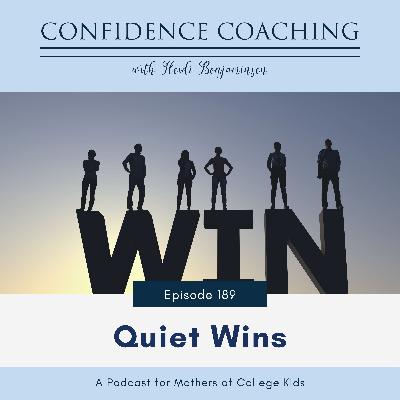
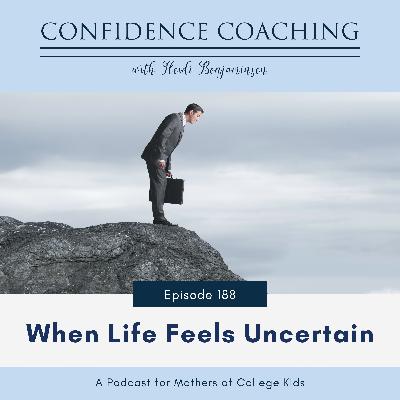
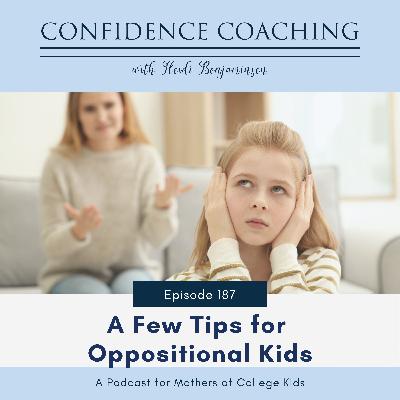
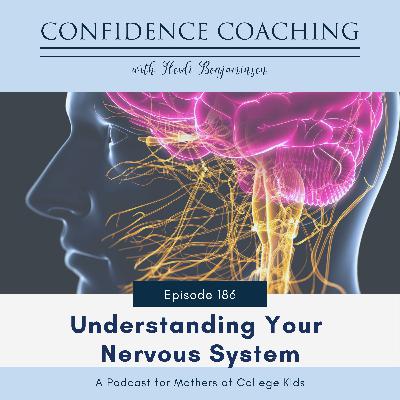
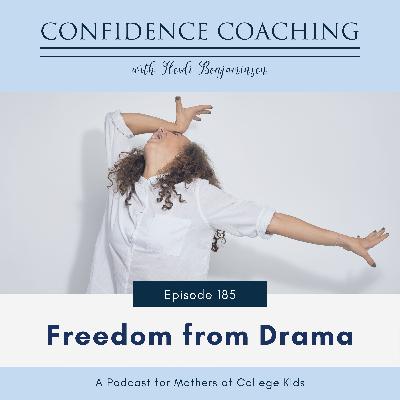
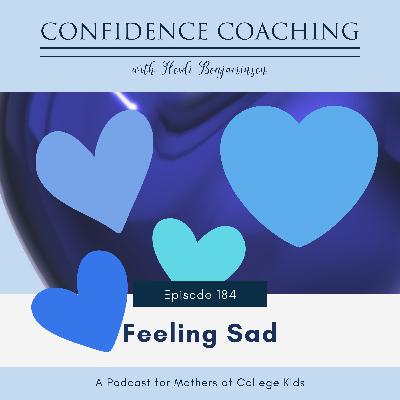
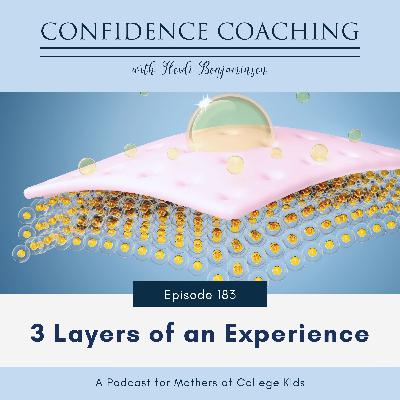
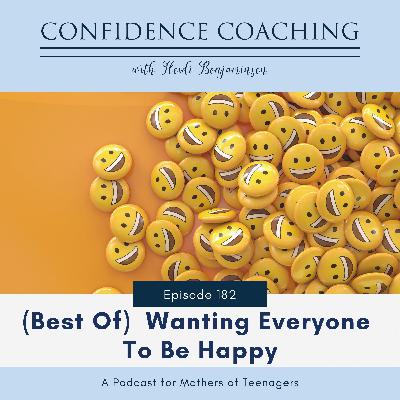
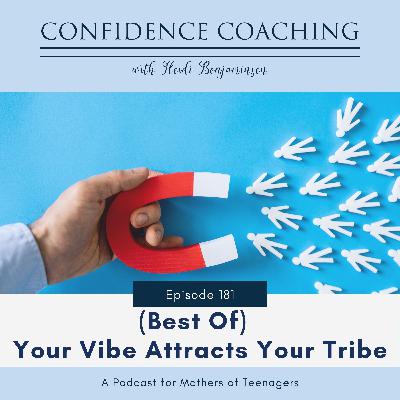



Hi, Heidi. Thank you for these thoughts! Looking back, I realize that worrying stole a lot of the joy I could've had while I was a foster parent. I worried so much about the kids, whether they would be okay, whether I would bond to them and ultimately have my heart broken. Know what? It was ultimately a more satisfying experience saying goodbye to the children I had opened my heart to, than it was to numbly release those I had not opened my heart to (or tried not to, anyway). I wasn't protecting myself from pain, I was really causing pain. Not only to myself, but probably also to them because children are so good at sensing our emotions. We finally have our "forever family", and I feel like I learned a lot from that time, but it also took me several years to break the habit of worrying I would lose them. If I could go back in time, I would tell myself to go ahead and lose myself in loving every single one of them, because either way it still hurt, and either way I still healed. -Janina
A really, really good episode about being confident as the mom you are.
This episode made a tricky concept so much easier to understand! Wow! Goodbye self consciousness!
Excellent!